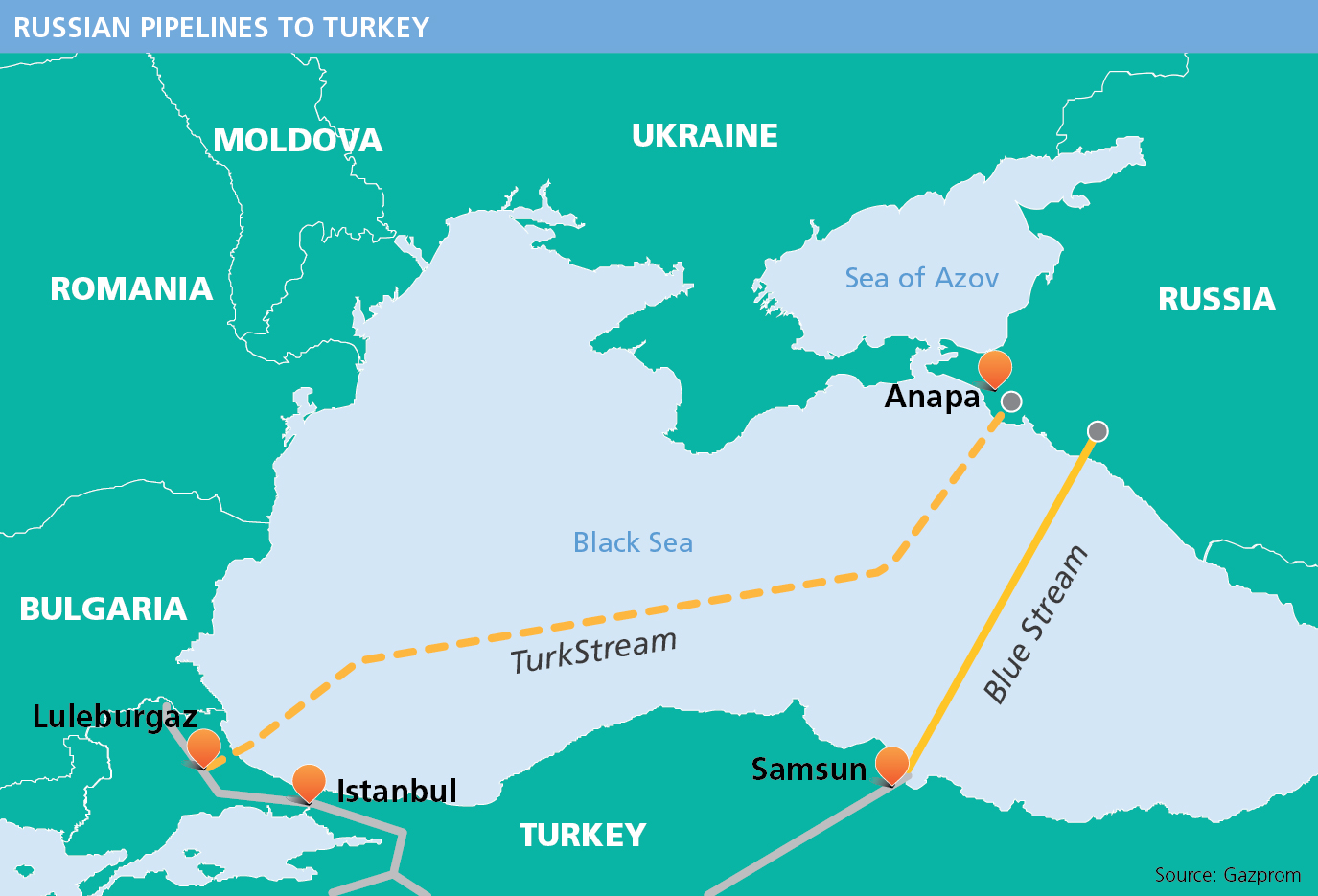Download PDF :


ICIS (22 October 2019)
Bulgaria inaugurated an 11km gas pipeline linking the Turkish border to a Bulgarian compressor station at Strandja on Monday, a critical extension of the TurkStream corridor to the region.
Nevertheless, four regional sources said exports will depend on Turkey signing an interconnection agreement with Bulgaria.
Russia intends to divert exports from the existing Trans-Balkan line which links Ukraine to Turkey and Greece via Moldova, Romania and Bulgaria to the TurkStream corridor. The latter is made up of two lines of 15.75 billion cubic metres/year each. TurkStream 1 is designed to feed the Turkish market, while TurkStream 2 will transit gas to Bulgaria, Serbia and Hungary as well as to Greece.
Russia intends to divert volumes currently exported to southeast Europe and Turkey via Ukraine to TurkStream 1 and 2 after the existing transit contract with Ukraine expires on 31 December 2019.
Despite this, four regional sources said Russia may struggle to divert all exports to TurkStream from 1 January on three accounts.
Firstly, they pointed out that even though TurkStream may be completed by the end of this year, Russia may not be able to supply gas to Bulgaria unless Turkey and its Balkan neighbour sign an interconnection agreement. So far, there have been no indications that the two countries were making any progress towards signing such a contract.
However, one of the sources said that Turkish gas incumbent BOTAS and Gazprom may sign an agreement covering TurkStream in the upcoming two weeks. This cannot be officially confirmed.
The sources also noted that in order for Russia to export natural gas to the region, it would require a new pipeline inside Bulgaria which would link the domestic transmission network to the Serbian border. The pipeline is being built, but is likely to miss the initial 1 January 2020 deadline. Its completion is due in the second half of next year, sources say.
They also pointed out that Bulgaria has a long-term transit contract with Gazprom on the Trans-Balkan pipeline until 2030. This means that the Bulgarian TSO Bulgartransgaz and Gazprom would have to agree on the new terms of transit if volumes were to be switched from the Trans-Balkan pipeline to TurkStream.
“Gazprom made a public announcement earlier this year that volumes would be discontinued on the Trans-Balkan pipeline, but they haven’t sent an official letter to Bulgartransgaz as yet,” a Bulgarian source said.
The source said that if Gazprom were to send an official notification for the cancellation of the transit via the Trans-Balkan pipeline, it could be subject to arbitration by Bulgartransgaz because the existing transit contract only ends in 2030.
Gazprom did not comment on whether it had sent an official transit cancellation notification to Bulgartransgaz.
https://www.icis.com/explore/resources/news/2019/10/21/10432603/bulgaria-launches-turkstream-extension-russian-gas-exports-still-uncertain

 MACRON’S VETO UNDERMINES BALKAN STABILITY, GREEK MEP SAYS
Europe - EU
22.10.2019
MACRON’S VETO UNDERMINES BALKAN STABILITY, GREEK MEP SAYS
Europe - EU
22.10.2019




























